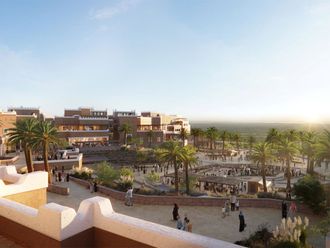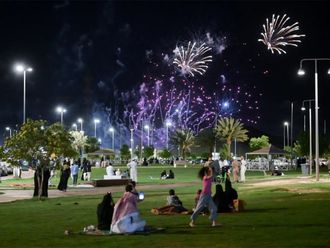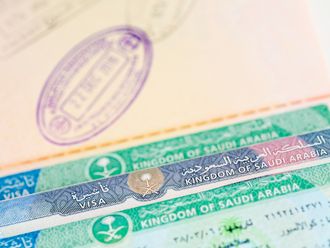Abu Dhabi: Dubai’s hospitality sector saw a 1.7 per cent increase in average daily rate of hotel rooms to reach Dh1,024 in December 2014, along with a 0.3 per cent increase in revenues Per Available Room (RevPAR) to Dh812, according to STR Global.
In a statement sent on Tuesday, the data research firm said the positive RevPAR performances came after six consecutive months of declines. The average room rates are also the highest since 2008.
Additionally, occupancy in hotels fell 1.4 per cent to reach 79.3 per cent in December.
“The decline in occupancy is driven by supply. Supply growth is currently at 6.9 per cent, and demand growth — whilst keeping pace and still growing — is slightly behind, with 5.3 per cent for December 2014,” STR Global told Gulf News in an emailed statement.
STR added that an occupancy rate of nearly 80 per cent is already high, with many markets in Europe recording lower levels.
“Our forecast, which STR Global produces in conjunction with Tourism Economics, predicts that RevPAR will remain flat with a growth of 0.9 per cent for the year of 2015. Rate is expected to continue to grow in 2015, as will demand. New supply is also expected to continue to come into the market,” the statement said.
Meanwhile, Christopher Hewett, senior consultant at TRI Hospitality Consulting, attributed lower occupancy rates to tumbles in the global economy.
“I think a lot of this has to do with [fluctuations] around the region, mostly Russia, which has been pulling a lot of pressures in recent months due to lower oil prices and sanctions from European countries. This resulted in quite a drop in tourists coming from Russia and Eastern Europe,” he said.
Russia is one of Dubai’s largest source markets.
Commenting on growing room rates, Hewett said that hoteliers have been capitalising on rising demand from guests.
“I think the first quarter [of 2015] is going to be a nervous time from some hoteliers. They’re going to be watching how the market is reacting to ongoing issues in Russia.
Also, you got a number of regional destinations coming back online. Egypt is experiencing an increase in the number of visitors [including] from Russian and European markets, and it’s catering to GCC visitors, which have historically been a strong source market for Egypt,” he said.












